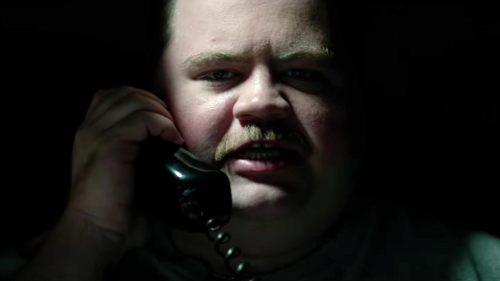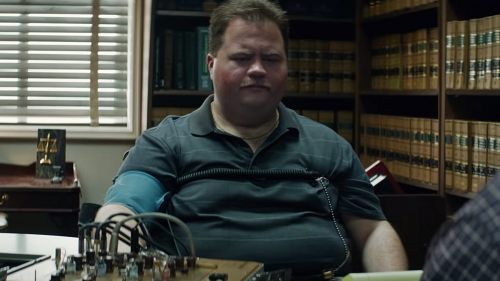A Case For Greatness: EVERY WHICH WAY BUT LOOSE
Classics never die, but they seldom get replaced. Cinema is populated with enduring, venerated works of art that deservedly adorn list after list, but those lists are rarely updated, and less often expanded to include new, equally worthy entries. Organizations that give out annual awards are constrained not only by the limitations of formatting, but perspective - they can’t anticipate which film will survive the buzz of its initial acclaim or success and become part of the cultural firmament. And then there are just certain films or even genres that too infrequently receive the critical attention they deserve, are too obscure to break through to bigger audiences, or just aren’t taken seriously enough to merit consideration alongside the ones we “all” already know we love or respect. A Case For Greatness, this series, tries to argue for, and to champion, forgotten or underappreciated films in a variety of genres that may be worthy of being called “classics.”
Clint Eastwood’s troubling history with Sondra Locke, vividly revisited last week upon the belated discovery that she passed away in early November, cannot help but color their work together. But even if Locke only got the best of Eastwood in real life after many years of legal struggles, Every Which Way But Loose feels like a thumb of the nose - an important rejoinder to his often unassailable heroism, thanks to a story shaped by his character’s foolish (and futile) pursuit of hers. Additionally the biggest commercial success (at that time) of his career, is a shaggy, charming, upscale “hicksploitation” movie turned mainstream crowd-pleaser by virtue of Eastwood’s star wattage that it seems only fair to give Locke and their onscreen partnership at least some of the credit for the box office windfall it made - or maybe more accurately, wouldn’t have made without her.
Eastwood plays Philo Beddoe, a truck driver who owns an orangutan named Clyde and gets into fights often, mostly for fun but occasionally for profit. Philo lives in a cabin behind the house of brother Orville (Geoffrey Lewis), the latter of whom brokers his bare-knuckle fights and tries to keep the peace with their Ma (Ruth Gordon) when Clyde makes a mess. After a trip to a local country-western bar, Philo falls hard for Lynn Halsey-Taylor (Locke), a singer with sex appeal, a supposedly estranged husband and a financial debt she desperately needs help with. But not long after Philo insists she take the winnings from one of his fights, Lynn takes off for Denver, leaving him with no girl and no money to show for it.
Convinced that Lynn is being controlled by her husband, Philo recruits Clyde and Orville for a road trip to Colorado, where they meet a resourceful young woman named Echo (Beverly D’Angelo) who turns out to be perfect for Orville. But when they finally catch up to Philo’s would-be dream girl, he finally discovers that Lynn’s interest was part of a phony scam cooked up with her husband, and he’s just the latest sucker to fall for her seductive charms.
Certainly without all of the underlying narrative relationship drama (meaning what’s on screen between Philo and Lynn), the movie is plenty of fun: it’s basically Eastwood hanging out with an orangutan and beating the shit out of people, over and over. Arriving three years after Smokey and the Bandit, it exudes a certain escalating complexity to its characters’ travails even while its humor bounces between dad-joke (“What’s your name?” “Echo.” “What?” “Echo.”) and metatextual levels (at one point Eastwood faces a gang of opponents in an alley and The Good, The Bad and the Ugly theme plays). Philo and his pals find themselves chased by a group of bumbling Nazi bikers, and later, a pair of vengeful cops - in both cases because he started, or more accurately, finished a fistfight with one or more of them. The chemistry between Eastwood and Lewis is dynamite - perfectly sibling-like - as they look out for one another and yet are equally susceptible to playing the fool. And Ruth Gordon is a scene-stealing hoot, a cantankerous mother who has no time or patience for any of her boys’ shenanigans, and even less for Clyde’s; her delivery of “Gawd dammit” automatically elicits laughs no matter what circumstances it’s said in conjunction with.
Meanwhile, the character’s toughness and hair-trigger temper make great foils for the intellectual vulnerabilities to which Philo falls prey, but they also communicate such a clear sense of what sort of person he is - more clever than smart, he’s perfectly content to work, drink, fight, fuck and repeat the cycle. Lynn’s scheme is not especially new or original, but he’s just dunderheaded and lovestruck enough to smarten up, even after he’s been taken for a ride. Locke gives Lynn real dimensionality, first by making her reciprocity to his interest seem genuine, and then by slowly but utterly believably dialing up her exasperation at Philo as he fails time and again to get the message that she is not interested in more than his money, and maybe a brief fling. (Suffice it to say there’s also a convincing sense of frustration that she has to time and again fend off his romantic interludes, but given the scam she’s perpetrating, they feel slightly more like an occupational hazard than the sort of unrelenting advances we’d today characterize as harassment.)
Then again, the women of the film are generally on firmer intellectual ground than the men. Echo initially seems like a doe-eyed free spirit who’s been introduced just to give Orville a companion, but she proves her mettle early on, helping them recoup their winnings after a fight promoter tries to betray Philo. Even Ma, despite her complaints they they’re “leaving an old lady alone,” is better at taking care of herself than either of her sons; when the bikers show up trying to menace her on her doorstep, she dispatches them handily with a shotgun. By the time a dumbfounded and hurt Philo lashes out at Lynn after she finally draws it out in black and white that she is not interested and he should get lost, her physical retaliation feels much more visceral than any of the bare-knuckle brawls Philo enters for money. Although in the end she’s cast unambiguously as the villain (especially in a 1980 movie starring Eastwood), the movie seems somewhat ambivalent about how bad a person she really is, and hints that his gullibility puts him on about an even keel with her at the end. “Guys like you don’t understand goodbye,” she astutely observes as he crumples in front of her.
Of course, the original reason that I first watched the film is because there’s an orangutan in it, which I personally find is always an immediate reason to laugh (and as a critic, award it one extra star purely on principle). Clyde sometimes seems like a superfluous addition to its storytelling formulas, but with the benefit of hindsight - the movie celebrated its 40th anniversary yesterday - his inclusion really just underscores some simple, important truths about its human males: it’s not especially a compliment that they can relate more easily to an ape than they can to women, or even each other. But where the movie truly comes together, and finds its message, is in its final fight, where Philo throws his bout against the mythic Tank Murdoch in order to let the aging brawler retire undefeated.
That’s probably something that Philo wouldn’t have done had Lynn not thoroughly embarrassed him - meaning, he needed a heaping dose of humility to recognize the humanity in his opponent. It’s an almost strange payoff to a film that’s so frequently big and bawdy, but certainly in retrospect, it suits the undercurrent of humanity running through the rest of the film, starting with Philo’s affection and respect for his orangutan pal and extending to his infrequent, succinct but powerful moments of honesty about the kind of wallop this woman packs. Of course, this “fighting ape owner” movie doesn’t have the sense of reflection of much of Eastwood’s later work, but maybe, just a little bit, it presages and subtly even sets up that phase. Because with or without the behind-the-scenes, external conflict to provide a context for Locke and Eastwood’s real-life relationship, Every Which Way But Loose declines to celebrate Clint in the same way other blockbuster star vehicles might, instead correctly observing that no matter how many punches you can take, it’s the emotional lumps that cause the most pain - and they are almost always the hardest to recover from.



